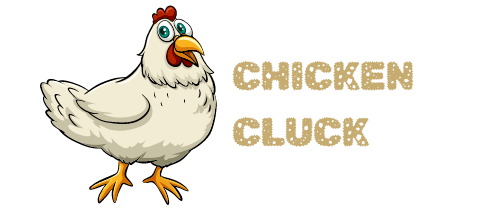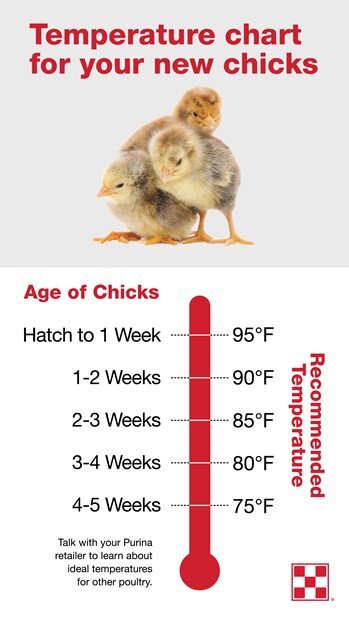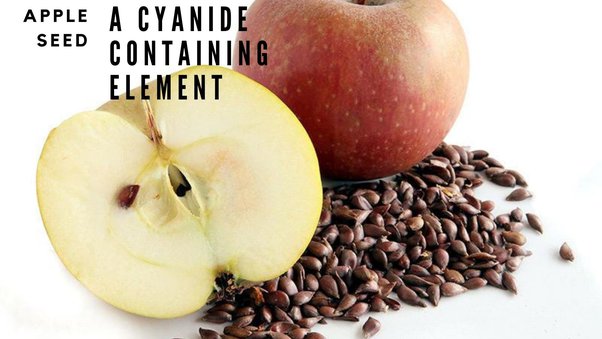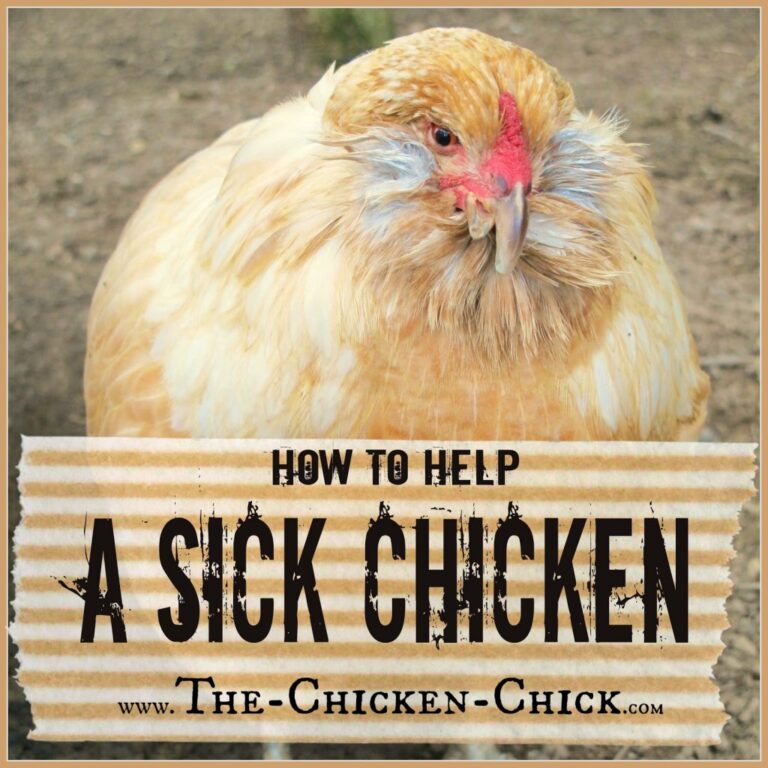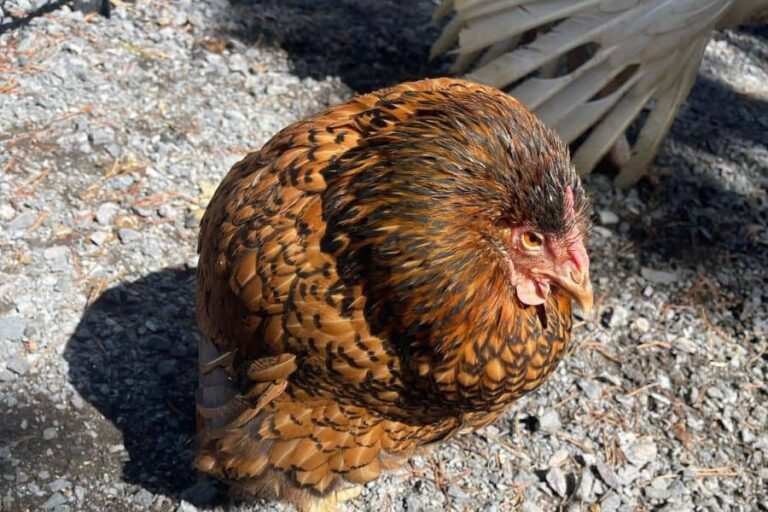Chickens can typically survive for 48 hours without water. Dehydration beyond this period could be fatal.
Chickens, much like other animals, require regular access to water to maintain their health and well-being. Ensuring that these birds have a consistent water supply is crucial for their survival and productivity, especially considering their need for water to regulate body temperature and aid in digestion.
Whether raised for eggs or meat, chickens consume a substantial amount of water daily, making it imperative for poultry farmers to monitor and provide adequate water resources. Neglecting the hydration needs of chickens can quickly lead to health issues, decreased egg production, and in severe cases, death. Understanding the importance of water for these birds is essential for anyone involved in their care.
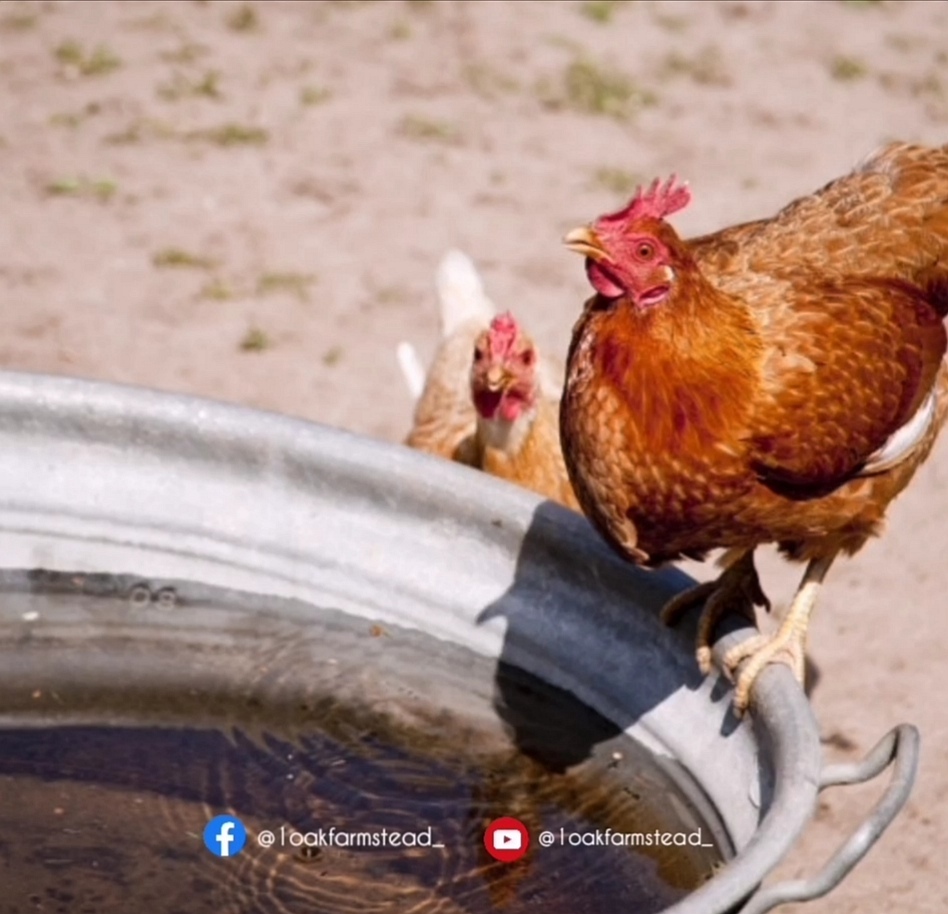
Credit: www.buymeacoffee.com
The Essential Role Of Water For Chicken Health
A chicken’s health and survival dramatically hinge on water access. Chickens require continual hydration to maintain their metabolic processes, digestion, and eggs production.
Without water, chickens cannot regulate their body temperature, which is crucial for their well-being, especially during hot seasons. Water acts as a conductor for nutrients and waste in their bodies, hence, is vital.
Physiological Importance Of Hydration
Chickens’ bodies, much like humans, comprise mostly water. This liquid is the cornerstone of cellular function, digestion, and waste elimination. Water is essential in the circulation of blood and the cooling of the chicken’s body through respiration.
- Maintains blood volume and pressure
- Helps in the absorption of nutrients
- Crucial in body temperature regulation
- Assists in respiratory efficiency
- Eliminates waste through urination
Impact Of Water On Chicken Welfare
A well-hydrated chicken shows signs of good health and high spirits. They display keenness in their behavior, have a hearty appetite, and produce at optimal capacities.
Water deprivation can lead to stress, dehydration, and in severe cases, death. Consistent water supply supports welfare by preventing these detrimental outcomes.
Consider the following points showcasing water’s impact on welfare:
- Reduces stress and promotes healthy behavior
- Ensures efficient digestion and nutrient absorption
- Prevents disease proliferation by flushing out toxins
- Maximizes egg production and quality
- Keeps chickens cool through effective body temperature management
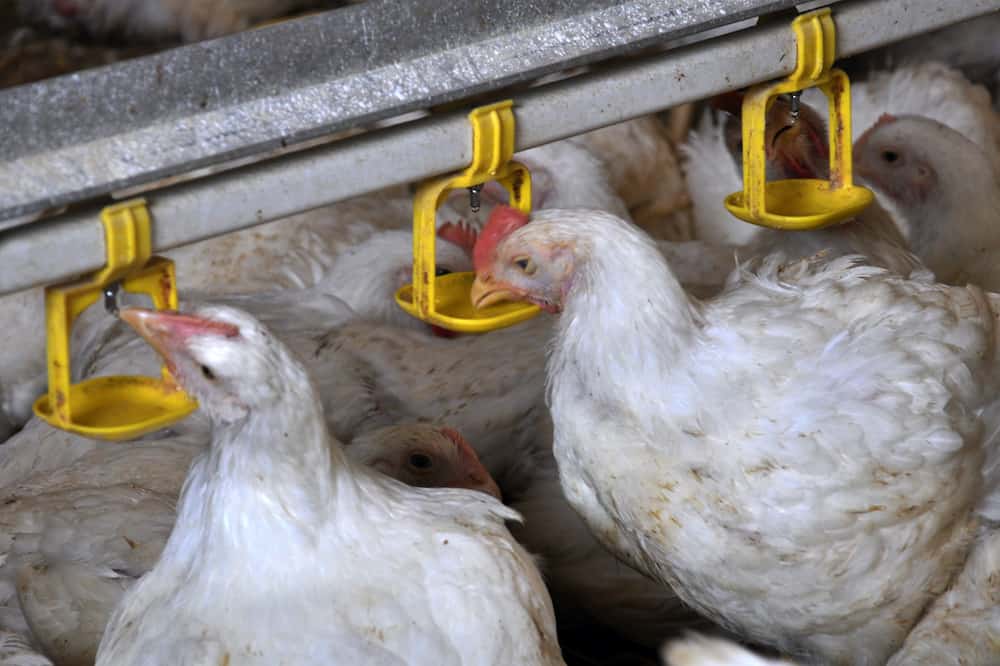
Credit: rurallivingtoday.com
Risks Of Dehydration In Chickens
Chickens need constant access to water. This crucial resource keeps them healthy. Without water, chickens face serious health risks.
Signs And Symptoms Of Dehydration
Recognizing dehydration early is key. Look for signs in your flock. Chickens may show:
- Lethargy: Weak, not moving much.
- Panting: Breathing fast to cool down.
- Wings Spread: Could signal overheating.
- Less Eggs: Dehydration affects laying.
Act fast if signs show. Give water right away. Dehydration could be deadly.
Long Term Effects On Poultry
| Issue | Effect |
|---|---|
| Weight Loss | Chickens can shrink in size. |
| Low Egg Production | Hens may lay fewer eggs. |
| Health Risks | Weak immune systems attract diseases. |
| Decreased Growth | Young birds may not grow well. |
A lack of water has lasting impacts. Don’t let your chickens suffer. Ensure a fresh water supply daily.
Average Water Consumption In Chickens
Water is vital for chickens, much like humans and other animals. Chickens need constant access to fresh, clean water to maintain their health and productivity. They consume varying amounts throughout the day to satisfy their hydration needs. Understanding a chicken’s daily water intake is crucial for their overall well-being.
Daily Water Intake For Adult Chickens
Adult chickens typically drink about one pint of water per day. The exact amount can vary based on their age, size, diet, and the temperature of their environment. Always ensure that water sources are clean and accessible to prevent dehydration.
Factors Influencing Water Needs
- Temperature: Chickens drink more in hot weather.
- Diet: A diet high in salty foods increases water intake.
- Age and Size: Larger and older chickens tend to drink more.
- Health: Sick chickens may drink more or less than usual.
- Activity Level: Active chickens require more water.
Monitoring these factors helps ensure chickens get enough water daily. Inadequate water supply can lead to severe health problems and decreased egg production. Keep a close eye on your flock’s water consumption.
Understanding Chickens’ Survival Without Water
Chickens, like all living creatures, require water to survive. Water plays a vital role in their bodily functions. It aids in digestion, temperature regulation, and nutrient absorption. But what happens when these feathered friends are without it? Let’s explore the resilience of chickens and how long they can last without water.
Survival Duration Without Hydration
Chickens need constant access to fresh water. Generally, an adult chicken can only survive for 48 hours without water under optimal conditions. This period drastically shortens with higher temperatures or if the chicken is actively laying eggs. It’s crucial to ensure a consistent water supply to maintain their health and egg production.
- Baby chicks: at most 24 hours
- Adult chickens: up to 48 hours
Behavioral Changes Due To Thirst
A thirsty chicken exhibits noticeable changes in behavior. Chickens may become lethargic or disoriented when dehydrated. They may stop eating and reduce their activity levels. Their comb and wattle can appear pale and dry. It’s essential to monitor these signs to prevent dehydration.
| Signs of Dehydration in Chickens |
|---|
| Lethargy |
| Disorientation |
| Pale comb and wattle |
| Decreased egg production |
Mitigating Risks: Ensuring Constant Water Supply
Keeping chickens hydrated is vital for their health and productivity. A chicken’s ability to stay active, lay eggs, and remain healthy hinges on a constant water supply. Understanding the need for round-the-clock access to water can avert the risks associated with dehydration. Read on for an insight into best practices and innovative solutions that guarantee uninterrupted water access for your flock.
Best Practices For Water Provision
Optimal water provision is non-negotiable for maintaining a healthy flock. Chickens need continuous access to fresh water; they simply cannot thrive without it. Follow these practices to ensure your chickens always have the water they need:
- Refill water daily to keep it clean and fresh.
- Maintain a few water stations to prevent crowding.
- In colder climates, prevent water from freezing using heaters.
- Utilize containers that resist tipping to reduce spillage.
- Implement regular cleaning schedules to avoid algae and bacteria growth.
Technologies For Uninterrupted Water Access
Innovative technologies can enhance the reliability of your chickens’ water supply. These tools are designed to keep your flock hydrated without fail:
| Technology | Benefits |
|---|---|
| Nipple Drinkers | Minimize spills, provide fresh water on demand. |
| Automatic Refill Systems | Save time, maintain consistent water levels. |
| Heated Waterers | Prevent freezing, ensure access in winter. |
| Water-Level Monitors | Send alerts, track consumption patterns. |
Pairing these technologies with daily maintenance routines means your chickens always have access to the water they need to stay healthy.
Preparing For Emergencies
Preparing for emergencies is a critical aspect of owning and caring for chickens. Water is vital for your flock’s survival and productivity. Understanding how long a chicken can go without water and preparing for situations where water might not be readily available is paramount. Let’s delve into effective strategies to manage potential water shortages and training methods for different water sources.
Management Strategies For Water Outages
When water supply is uncertain, being proactive is key. Here are steps to manage water outages:
- Always Have a Backup: Keep spare water containers filled and ready.
- Monitor Water Levels: Check your flock’s water supply regularly.
- Reduce Water Waste: Use drinkers that minimize spillage.
- Insulate Pipes: Prevent freezing in the winter.
| Action | Benefit |
|---|---|
| Maintain Clean Water | Ensures health and reduces stress |
| Water Additives | Electrolytes can aid in recovery |
Training Chickens To Drink From Alternative Sources
Chickens adapt to new drinking sources with proper training. Here’s how to teach them:
- Introduce Early: Start with chicks for easier habituation.
- Show and Tell: Demonstrate the action to promote learning.
- Mix Old and New: Place new sources next to the familiar ones.
- Be Patient: Allow time for chickens to adjust at their own pace.
Remember, access to water directly impacts your chicken’s health, egg production, and overall wellbeing. Regular training and emergency preparation ensure your flock stays hydrated, healthy, and happy at all times.
Case Studies: Chickens Surviving Extreme Conditions
Chickens are known for being hardy animals. But how long can they go without water? We dove into research and real-life stories to find out. Let’s look at some eye-opening case studies that highlight the resilience of these birds.
Anecdotal Accounts Of Resilience
Storytelling through the ages reveals the hardiness of chickens. Farmers from arid regions share tales of their flocks going days without water. While not ideal, these stories show chickens can sometimes beat the odds.
- A Texan farm reported chickens surviving for a week without water during a drought.
- In Australia, chickens were found alive in the bush, having gone days without a clear water source.
- Rural villages in Africa have documented chickens living off sparse moisture from morning dew and food scraps.
Scientific Observations And Findings
Research provides clear evidence of chickens’ survival capabilities under stress. Studies confirm that chickens can endure without water better than other animals, but not without risks.
| Study | Location | Duration Without Water | Survival Rate |
|---|---|---|---|
| University Experiment | USA | 48 hours | High |
| Desert Survival Research | Middle East | 72 hours | Moderate |
| Climate Change Impact Study | Australia | Variable | Low to Moderate |
Researchers emphasize the severe impact of dehydration on chicken health. The loss of egg production, weight, and overall vitality are observed. Access to water is critical for maintaining a healthy flock.

Credit: www.reddit.com
Key Takeaways For Poultry Keepers
Ensuring the health and safety of chickens involves consistent access to water. Lack of water can lead to severe health issues or even death. Poultry keepers must understand water’s critical role. Here are essential strategies to maintain hydration in your flock.
Implementing Best Water Practices
- Provide clean water at all times to prevent dehydration.
- Use water containers that chickens can’t tip over.
- Change water daily to keep it fresh and safe.
- Position water sources in shade to keep water cool.
Chickens need constant access to water. Without it, they can suffer within hours. Apply these best practices to avoid risks.
Recognizing The Importance Of Regular Monitoring
- Check water levels several times a day.
- Monitor the flock for signs of thirst, like panting.
- During hot weather, increase water check frequency.
- Understand each chicken’s normal drinking habits.
Observation is key. A watchful eye ensures chickens always have access to water. It helps spot troubles early on.
Conclusion
As we’ve explored, chickens require regular access to water for their health and productivity. Prolonged dehydration can lead to serious issues, impacting both their well-being and egg production. Ensuring your flock has consistent, clean water is essential. Remember, their survival depends on the care you provide.
Stay vigilant, stay informed, and keep your chickens hydrated for a happy, healthy coop.
